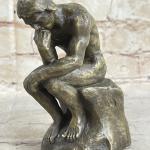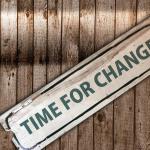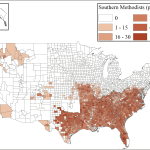Will Rees says in his TLS review of Judith Butler’s Senses of the Subject that the “biggest topic of discussion” has been Butler’s writing style, which he characterizes as “torturous.” It’s not just the style.
In her poststructuralist early work, Butler argues that “gender identities are constructed by the machinations of a culture’s ‘juridical systems of power.’ Following Foucault, she argues that power is not wholly negative and juridical (‘Thou shalt not . . .’), but also positive and constitutive (‘Thou shalt be . . .’).” Gender constructionism wasn’t new. Mainstream feminism distinguished between biological sex and culturally constructed gender. Butler was distinctive for the way she undermined the very distinction she depended on: Taken to its logical extreme, the sex/gender distinction suggests a radical disconnect between sexed bodies and culturally articulated genders. If gender can be so radically detached from biological differentiation, such that the relationship between the two is contingent rather than necessary, the question arises ‘whether sex was not gender all along.’” Butler tried to address this issue by insisting on the performativity of gender: “it is not something that one simply is but something that one does.” Yet, following Nietzsche, she insisted too that this performativity wasn’t “a doing by a subject who might be said to preexist the deed.”
In response to the charge that she reduced bodies to linguistic constructs, treated “performativity” as no more than “performance,” and therefore lent aid and comfort to the gender status quo, Butler denied that “that I thought that one woke in the morning, perused the closet . . . for the gender of choice, donned that gender for the day, and then restored the garment to its place at night.” She tried to hold biology and constructivism together with the claim that the very facticity of the body is cultural informed by a process she called “materialization.”
In one of the essays in her current collection, she continues this response, “she distances herself from the ‘linguistic constructivism’ whose source she is sometimes credited as being, arguing that while the body is always understood linguistically, it would nonetheless be ‘quite scandalous’ to hold that ‘the body is not only made by language, but made of language’ . . . The body may be given through language, but, she insists, it ‘is not, for that reason, reducible to language.’”
Rees asks, “Does Butler therefore believe that the body has a determinable existence outside of language?” He finds Butler evasive: “This threshold – between idealism and realism – marks the spot where she ‘would hesitate, perhaps permanently.’ Because, while the body evades attempts to capture it linguistically, so does that very evasion. To deduce from the body’s recalcitrance to our interpretative efforts that it exists outside of discourse would be self-defeating: it would attempt to prove our interpretative limitations by trespassing beyond them.”
As usual, the dilemmas thrown up here arise from an abandonment of theology, which can hold constructivism and biology together. As with the fragmentation of modern moral philosophy as described by MacIntyre, so with cultural theory: Thinkers work with bits and pieces of what was once a coherent, unified theology, and can do more more than arrange a sort of bricolage.
On Christian premises, the body is linguistically constructed, made by the Word who is God and as the image of that Word. It has no existence outside of language, but the language outside of which it has no existence is the divine Logos. Along the path that begins there lies sexual sanity.
(Photo by Jreberlein.)















